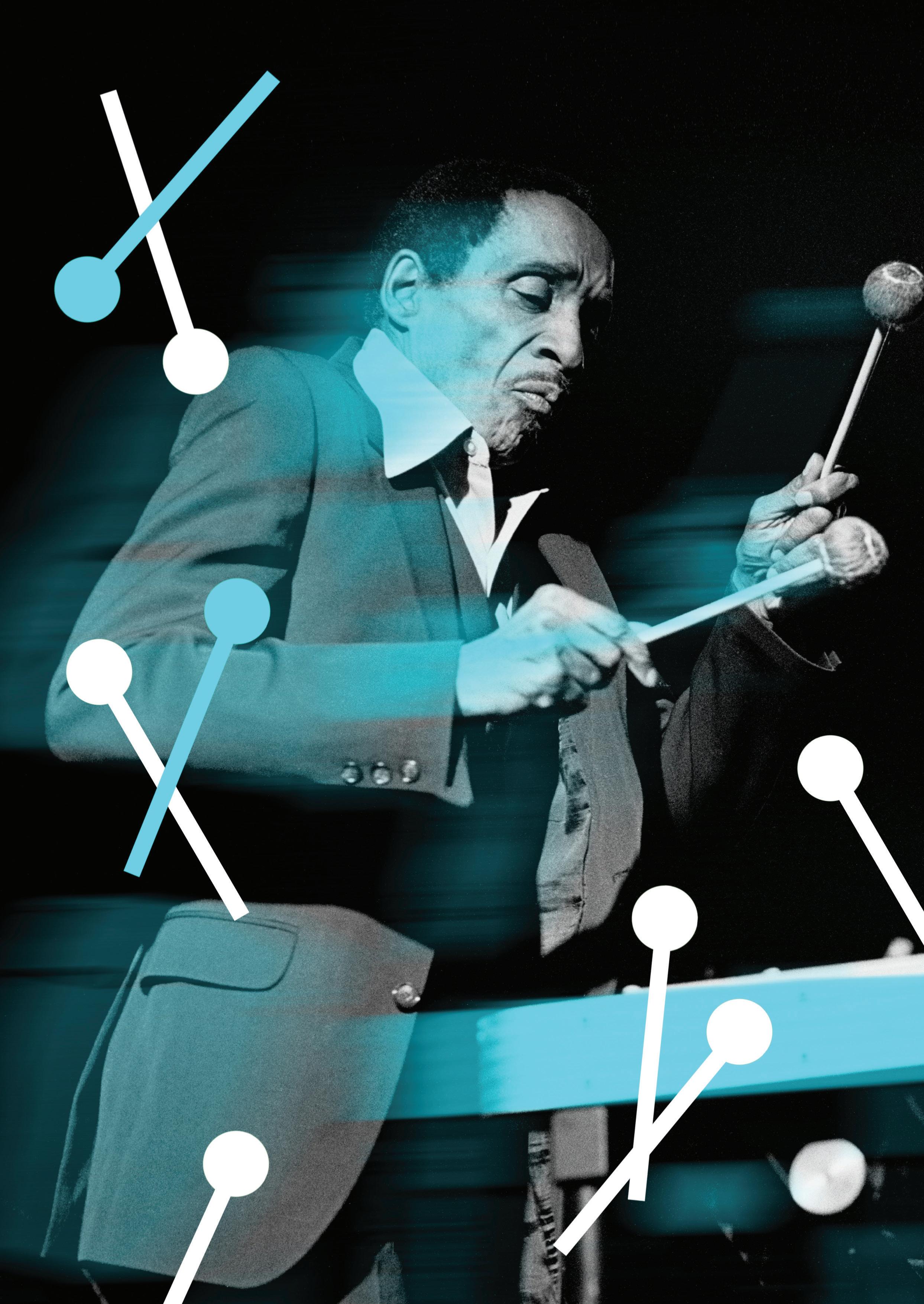
13 minute read
Blue Skies The Bluesberries
Iris Zeng talks to the composers of an international peace song
Last February, Russian soldiers attempted to invade Ukraine’s capital, Kyiv. Two musicians – one, a scruffy English music producer who worked with Art Garfunkel and Robbie Williams, the other a cleanshaven journalist – riffed together at a recording studio in Glebe, Sydney. What began in the lounge room became a moving peace song for Ukraine. Seventy Australian and Ukrainian musicians, including the Youth Symphony Orchestra of Ukraine and Shchredryk Children’s Choir, joined defying air raids and electricity blackouts to ask a single question – ‘why?’.
Shortly after the song’s premiere, I caught up with Paul Beard (‘Beardy’) and Dan Fallon, co-founders of The Bluesberries and composers behind Blue Skies, which begins:
I looked into your troubled eyes and said goodbye And nobody knows if this will be the last time All we ever wanted was an ordinary life
PB: It’s blown our minds that we’ve been able to succeed in what started out as an idea in Dan’s living room and has turned into this international project that has brought hope and optimism to everybody who gets connected.
DF: We came from a position of imagining the trauma in a sense of having to leave your home and loved ones. But the theme of the song really is about imagining a day when you can come back together… I’m amazed the Ukrainians who were under attack listened to the song, recognised what this is about, came on board and were equal partners in the song. It takes great courage to imagine peace when you’re being attacked. PB: One of my favourite stories from this process was a line in the song that says, ‘all we ever wanted was an ordinary life’. On the day the Shchedryk Children Choir recorded – which involved finding a recording studio that had a bomb shelter – from the bus driver to the catering staff to the recording engineers to the kids themselves, they all said how happy they were because it was the first normal day they’d had since the war started.
Was there a particular moment that inspired you to write Blue Skies?
DF: For me, music is a way of processing what is going on. It’s like art because you take what you see and then you try and process it. The storming of Kyiv – probably the horror that this was actually happening – was the pivotal thing I was responding to. Paul had his feelings about what was going on and John (our other partner) too. And we came together and did this – a song for peace, a song for hope, and a song to show solidarity with the people of Ukraine.
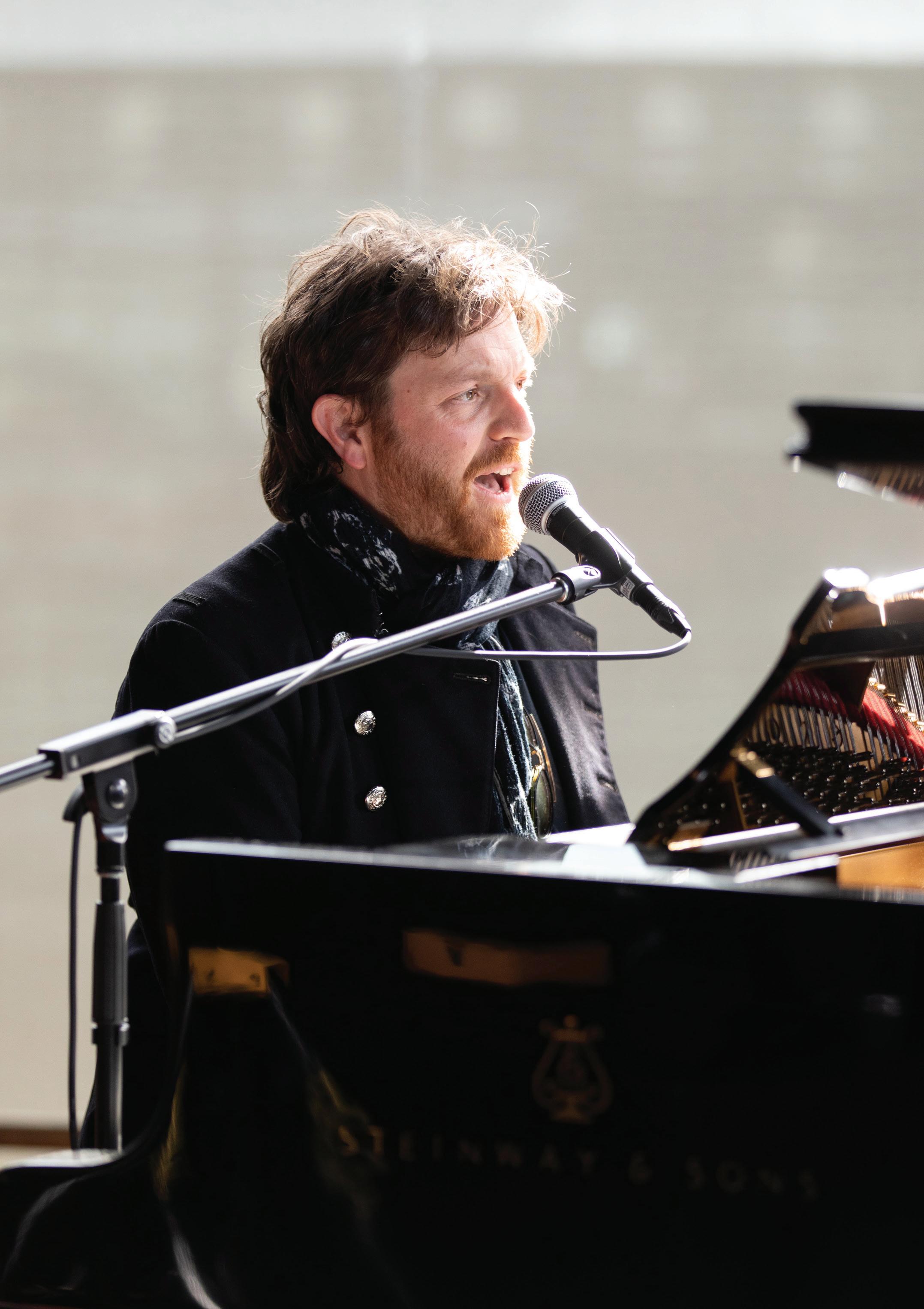
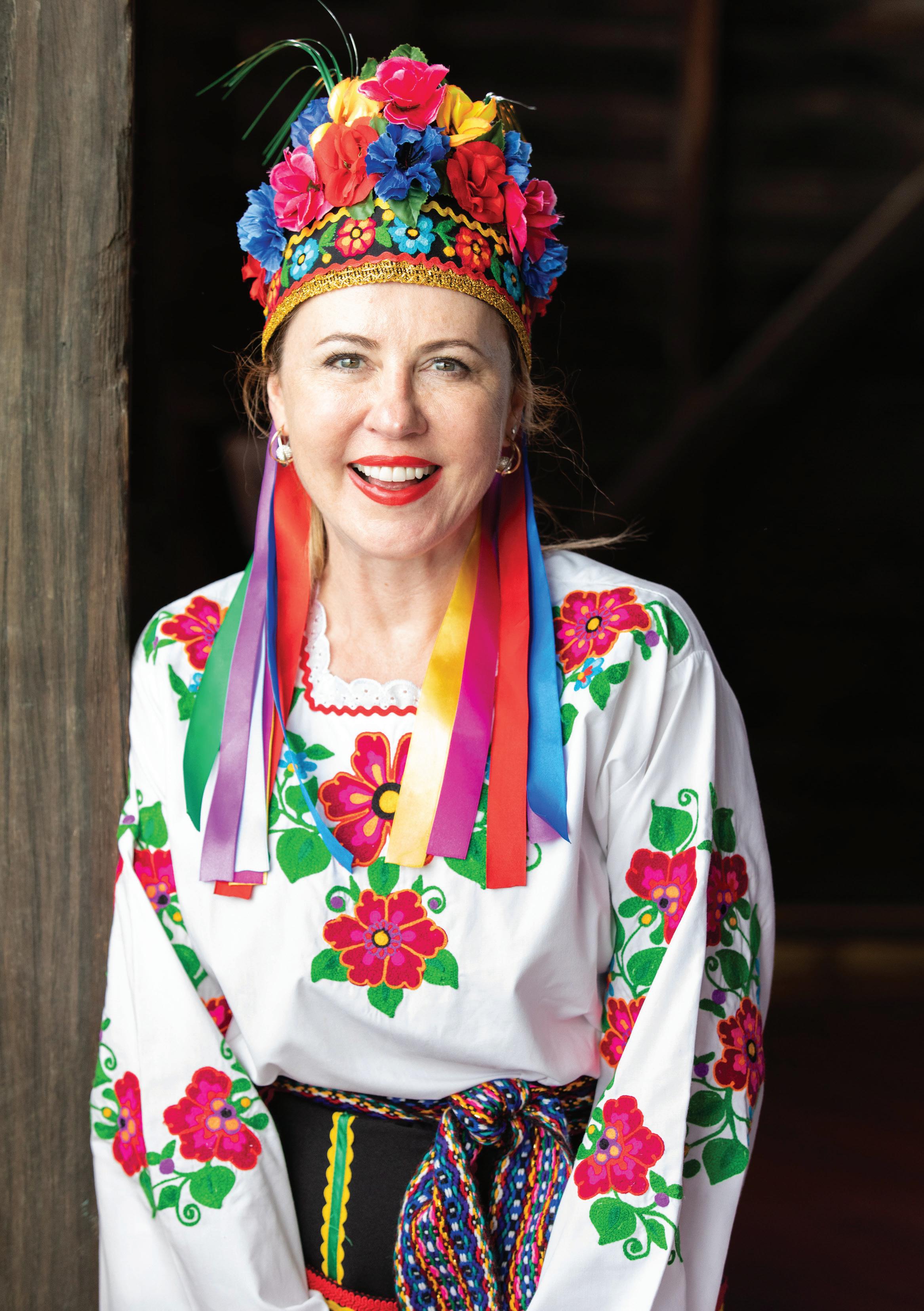
What was it like working with Ukrainian musicians?
DF: They’re such a resilient people… With the Youth Symphony Orchestra of Ukraine, you’ve got 12 to 22-year olds, the best young classical musicians from across Ukraine. You’ve got Illya Bondarenko, this 21-year-old violinist, arranger and composer who did this incredible arrangement of our song, which brought me to tears when I first heard it. We got the Shchedryk Children’s choir, which Paul did an arrangement with Roman Surzha. There are so many young people involved in this, so we’re inspired to see them and to hear them. They’re the future of Ukraine. Maryana Golovko, the female voice, also wrote lyrics in Ukrainian for us.
PB: If you listen to the choir arrangement, there’s a bit in the middle where the children stack up this incredible harmony that ends up being quite dissonant, using the word ‘why’ - the Ukrainian word chomu. That was the statement, really, why are we doing this? We are one.
DF: At one point in the band film clip, Paul looks at the camera and speaks directly to the camera, as if to say, ‘Come on, everyone!’.
PB: Oh, I really meant it. I’ve got a nine-year-old son, who’s going to inherit the world along with all the other kids, and it’s like, what are we doing? This is insanity and I really, really mean it. If I’m remembered for one thing musically, it’s that exact statement.
How would you describe the style of the music?
PB: When we started writing the main section of the song, it was evident that it was going to be an Elton John-style ballad. But as everybody was packing up on the day we recorded, I said, “Wait, what if it goes reggae at the end?” The song itself was always about optimism. Finding optimism in the darker moments… For us, the reggae section at the end came to represent that, but it was a oneshot, last-minute addition.
Having worked with Art Garfunkel, and now this charity song, what’s the difference?
PB: There’s no difference in almost every way. Obviously, this Blue Skies project is about trying to help people who are facing a bitterly cold winter with limited access to food, water, and electricity. I’ve had some amazing moments in my career, but I’m a farm boy from the middle of England who had big dreams and they came true for whatever reason. Every musical situation that I step into, I just give everything, and I try and speak my mind… in that respect, it’s no different. You show up and you sing from the heart.
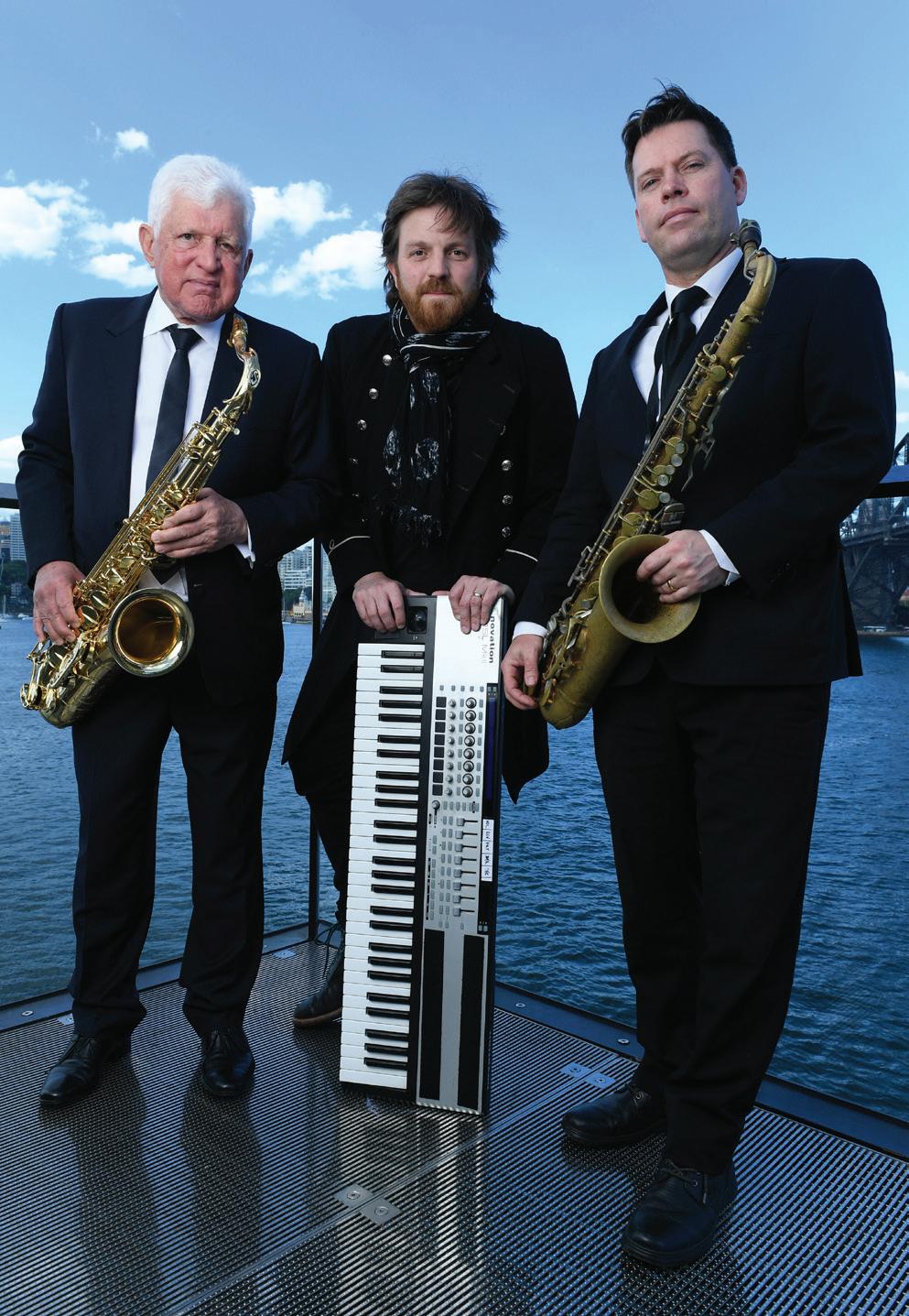
If you didn’t have music, what other path would you have taken?
DF: You’d still be with the sheep!
PB: I love helping people. It’s my favourite thing, which is why this project is so special because it’s combining music and helping people. I love psychology and all that stuff, so maybe a therapist. My biggest thrill is helping people.
Listen to Blue Skies and donate: www.unrefugees.org.au/withukraine
Watch teaser clip here
From Pathos to Comedy
Elaine Siversen previews the operas to be presented by Fine Music Sydney in 2023
Pathos, love, joy, valour, humour, scheming, rivalry, jealousy, and deception may all be found in the operas to be presented during 2023. It is a kaleidoscope displaying the whole gamut of human emotions unfolding in glorious music. Our monthly themes will explore these emotions and some interesting events.
As well as some well-known and popular operas, we will present others that may be completely unknown to many and, as usual, every musical era is represented as we endeavour to satisfy different musical tastes but also to widen our operatic horizons.
Opera Oscura: March, May, August, November
Opera Oscura is a continuing fifth week of the month series of lesser-known operas from the programmer’s own collection. In 2023, operas are Michael Haydn’s Endimione in March and a double bill in May of Charles Dibdin’s The Ephesian matron and Thomas Arne’s Alfred (which includes Rule! Brittania), following our monthly theme, In Britain. Antonio Salieri’s Armida is in August, and Johann Reichardt’s Der Geisterinsel, based on Shakespeare’s The Tempest, completes the series in November.
January: From the Stage
The great dramatic writers, Edmond Rostand, William Shakespeare, Maurice Maeterlinck, and Tennessee Williams, are the authors of the plays on which the January operas are based: Alfano’s Cyrano de Bergerac, Bellini’s I Capuleti e I Montecchi, Debussy’s Pelléas et Mélisande and Previn’s A streetcar named desire. Love, tragedy, and pathos abound.
February: Succession
Rossini’s opera, Semiramide, premiered 200 years ago on 3 February 1823. Queen Semiramide’s young lover assumes he is to inherit the kingdom, but the outcome is quite different when the longlost son of Semiramide and her murdered husband is nominated as heir. The writer from The Opera Scribe describes Salieri’s Tarare as ‘a revolution in five acts’, noting that it was composed just two years before the French Revolution and depicts a popular uprising against a despotic Sultan with cries from the populace for liberty and equality. Based on Beaumarchais’ story, it is a conflict between an absolute monarch and the virtuous Tarare, who reluctantly accepts when the people demand he be the Sultan.
The other two operas are based on historical events. Handel’s Giulio Cesare is a story of intrigue, murder, and scheming to make Cleopatra the Queen of Egypt, ruling with Caesar by her side. Following the death of Tsar Boris Godunov, the first Romanov Tsar, Mikhael, is elected but faces an invasion by the Poles. The bravery of a peasant, Ivan Susanin, thwarts the plans of the invaders to capture the Tsar who is then crowned. Glinka’s A Life for the Tsar tells this story.
March: Rivals in Love
Tragedy follows jealousy in the pursuit of love. Don José and Escamillo, the love rivals in Bizet’s Carmen, are taunted by Carmen and her fickleness ends in her death at the hand of Don José. In Cilea’s Adriana Levouvrer, the actress, Adriana, and a princess are rivals for the love of the same man which ends in tragedy for one of them. A happy ending in Vivaldi’s Bajazet is the result of a tragic event that causes the one suitor to give his blessing to the marriage of his rival to the woman he himself had desired. La cour de Célimène by Ambroise Thomas lightens the mood. This comic opera is set in the court of a widowed Countess who has a dozen suitors whom she plays off against each other.
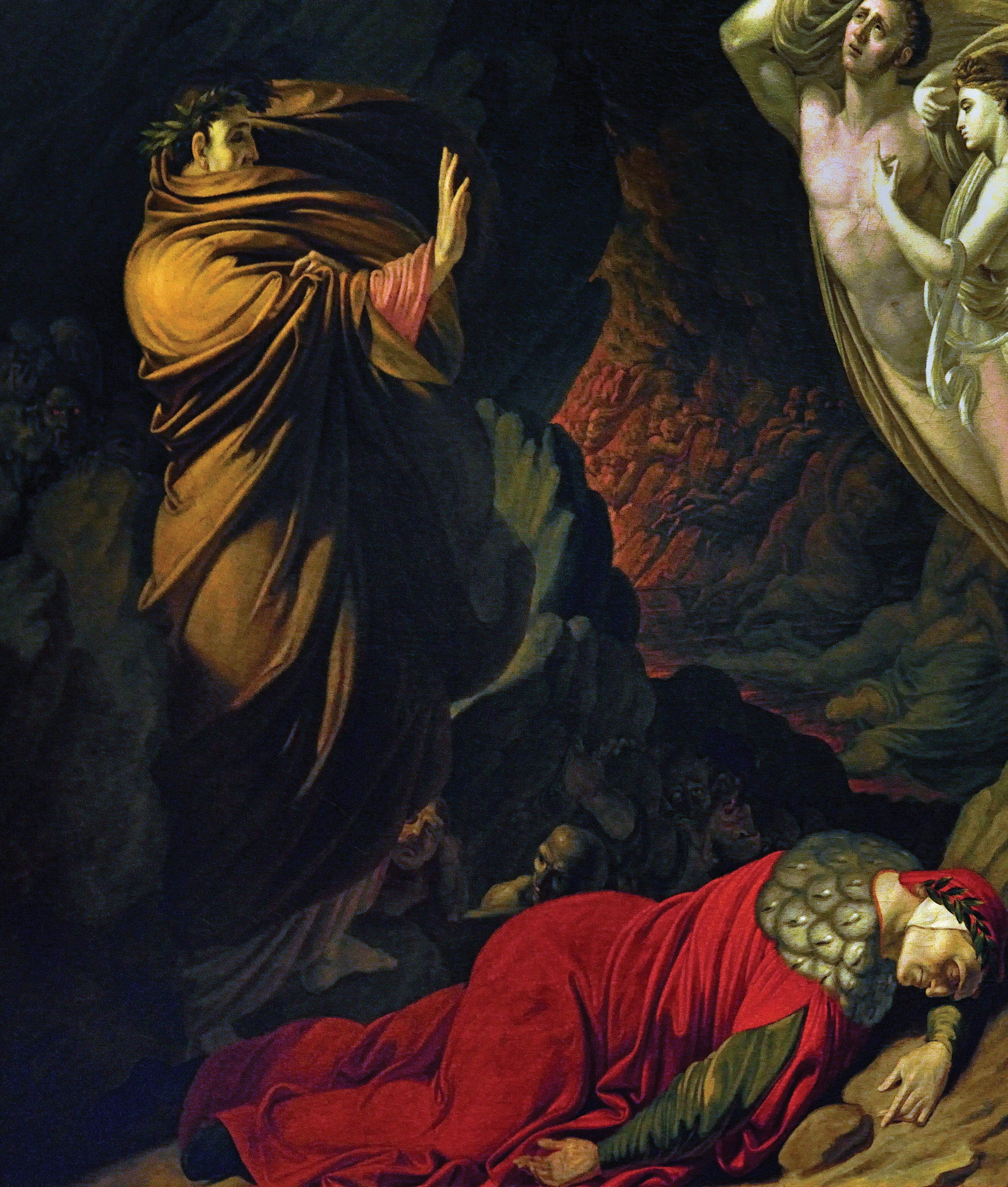
April: The Underworld and the Devil
In April, we present Rachmaninov’s Francesca da Rimini based on a canto in Dante’s Inferno. This will form part of a major celebration of the music of Rachmaninov for the 150th anniversary of his birth. The opera will be teamed with Psyche by Locke in which Psyche is rescued from hell. Gluck’s Orfeo ed Euridice continues the theme of rescue from the Underworld. Weinberger’s comic opera Schwanda the bagpiper tells how Schwanda is rescued from Hell when the Devil is beaten in a card game. The Devil is called Belfagor in Respighi’s opera Belfagor. He causes havoc between a pair of lovers but is beaten up by the male and flees.
May: In Britain
Two operas are based on Walter Scott’s novel Ivanhoe: Sullivan’s Ivanhoe and Rossini’s Ivanhoé. They are colourful tales of life in 12th century England. In Handel’s Flavio, rè di Longobardi, Flavio, King of the Lombards, is also King of ancient Britain. The story revolves around a beautiful woman who is desired by two men. When one of the men marries a less beautiful woman, his reward from Flavio is to be Governor of Britain. Henry Clifford by Albéniz is based on historical figures and events in 15th century England during the Wars of the Roses.
June: Aftermath of War
Roussel’s Padmâvati is the beautiful wife of a Prince. The Mogul Sultan names her as the price of peace but, when the Prince refuses, the Moguls overrun the city. The Prince is killed and Padmâvati perishes on his funeral pyre. The Sultan’s war was in vain. The Golden Cockerel of Rimsky-Korsakov, a gift to the king from the astrologer, sounds a warning that the kingdom is in danger. The King’s sons are killed in the ensuing war, but the King marries the woman of his dreams. The astrologer claims the Queen as his reward for his gift. The King kills the astrologer, and the golden cockerel kills the King, but reality and fantasy are intertwined.
The rise of Italian nationalism was the result of the invasion of Milan by the German Emperor Barbarossa as recounted in Verdi’s The battle of Legnano. Handel’s Partenope is set in Naples where Partenope is the queen. She has numerous suitors, but one begins a war when she will not marry him. When Partenope is victorious, the complications of love take over.
July: In Disguise
Disguise is a common ploy in opera. Fauré‘s Penelope draws on Ovid’s writing and the return of Ulysses in disguise to thwart the numerous suitors for Penelope’s hand whom she has been stalling as she waits for his return. The wonderful Rossini comedy, The Barber of Seville, has the barber, Figaro, aiding the hero as he adopts various disguises to enter the house where his loved one lives with her guardian. Il giorno di regno by Verdi tells how the deposed Polish King, Stanisław I Leszczyński, returns to Poland leaving a French officer to impersonate him in Paris. The opera follows the one day when the officer is ‘King’. Two angry women in disguise assail the two men who are deciding which one of the ladies each will marry in Haydn’s L’infedelta delusa. Many disguises are adopted until the matter is settled to the women’s satisfaction.
August: Myths and Legends
Cesti’s Le disgrazie d’Amore was first presented 400 years ago on 5 August 1623. Then Blow’s Venus and Adonis is teamed with Purcell’s King Arthur and takes us from the realm of ancient myth to one of the great legends of all time. Rimsky-Korsakov’s Sadko is based on traditional heroic ballads that weave fantasy around this 12th century historical person where the action takes place in the realm of the Sea-King. Described as a ‘legend in four scenes’, Der Kaiser von Atlantis by Viktor Ullmann is not set in the legendary sunken city of Atlantis as one would expect. Instead, the story is about Death being overcome. Composed in the concentration camp, Theresienstadt, this was the abiding hope of the inmates. It follows Janácek’s Sárka on the same night that recounts the Bohemian legend of the final battle of the fierce warrior, Sárka, the leader of a female army.
September: From Literature
Lord Byron is the author of I due Foscari, the basis for Verdi’s opera. Chabrier based his Briséïs on a work of Goethe that is in a double bill with Schubert’s comedy, The four-year post, taken from a rhyming text by Theodor Körner. Monteverdi’s The return of Ulysses is from the same volume of Ovid used by Fauré for Penelope that will be broadcast in July. The comic opera, The barber of Baghdad, by Peter Cornelius comes from tales in One Thousand and One Nights, a collection of Middle Eastern folk tales compiled by anonymous authors and scholars during the Islamic Golden Age.
October: Innocence Revealed
Falsely accused, the innocent victims are exonerated in Rossini’s The Thieving Magpie, Janácek’s Jenufa, Handel’s Ariodante and Weber’s Euryanthe.
November: Ghostly Encounters
A compulsive gambler becomes deranged in Tchaikovsky’s The Queen of Spades when the card that he is holding turns into a ghost. Ghostly visions appear to a governess and her charges in Britten’s The turn of the screw with a tragic outcome. The legend of the invisible city of Kitezh by Rimsky-Korsakov tells how a mist makes Kitezh invisible to attack. The ghost of its Prince, killed in battle, appears and the city turns into Paradise where the spirits of the dead reside. The sorceress in The Egyptian Helen of Richard Strauss causes King Menelaus to be confused about his wife, Helen, who eloped with Paris. Is he seeing the real Helen or a wraith who appears as Helen?
December: Comedy
In a light-hearted end to the year after many tragic operatic events, we have five comedies beginning with two short little-known operas: Auber’s La sirène and Bizet’s Djamileh. Ethel Smyth’s suffragette opera, The boatswain’s mate is a battle of the sexes. Rameau’s Platée, one of the funniest of the Baroque operas, involves deception leading to a touch of pathos. We finish the year with Mozart’s La finta giardiniera, a tale of mismatched lovers, two of whom lose their minds but are happily restored to their senses.
A feast of wonderful singing awaits every Wednesday night at 8pm in At the Opera.
